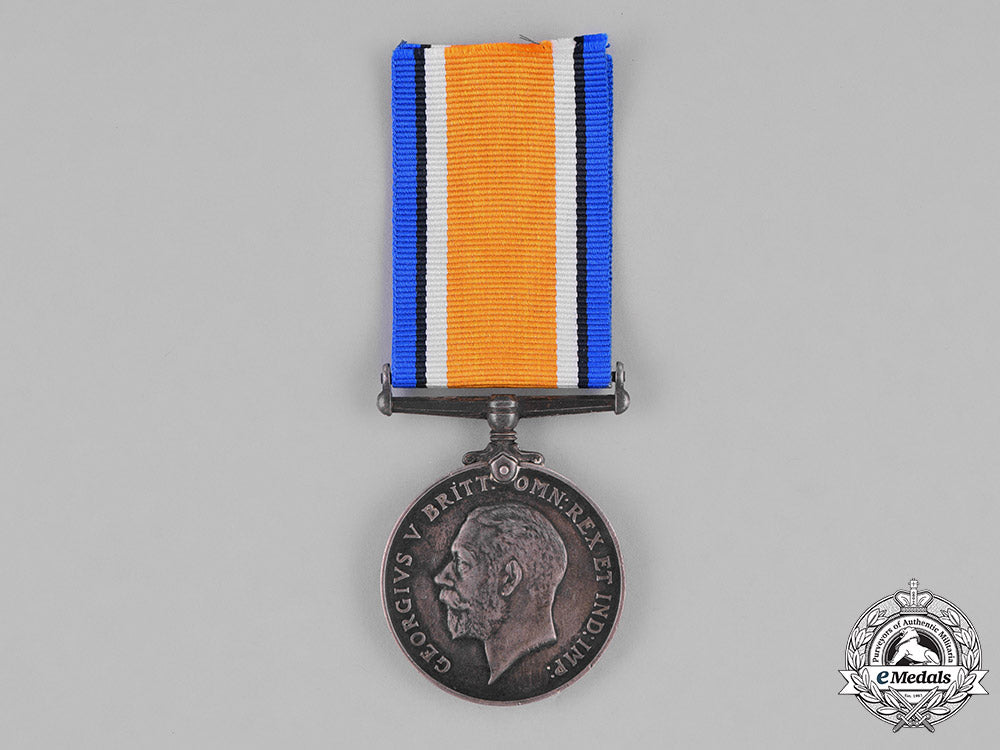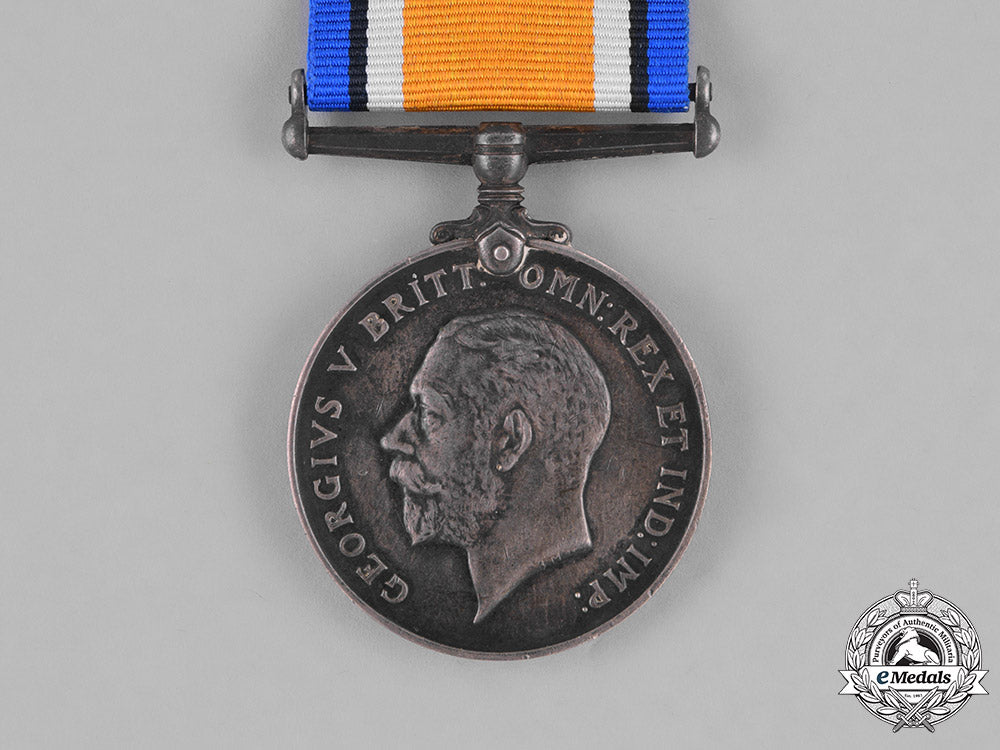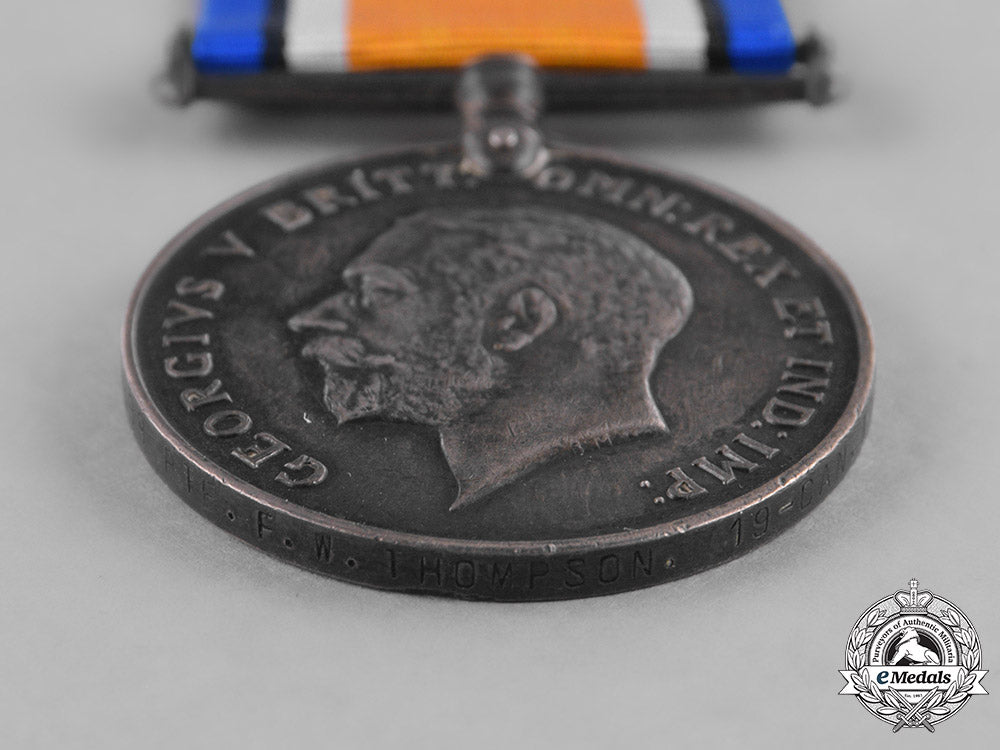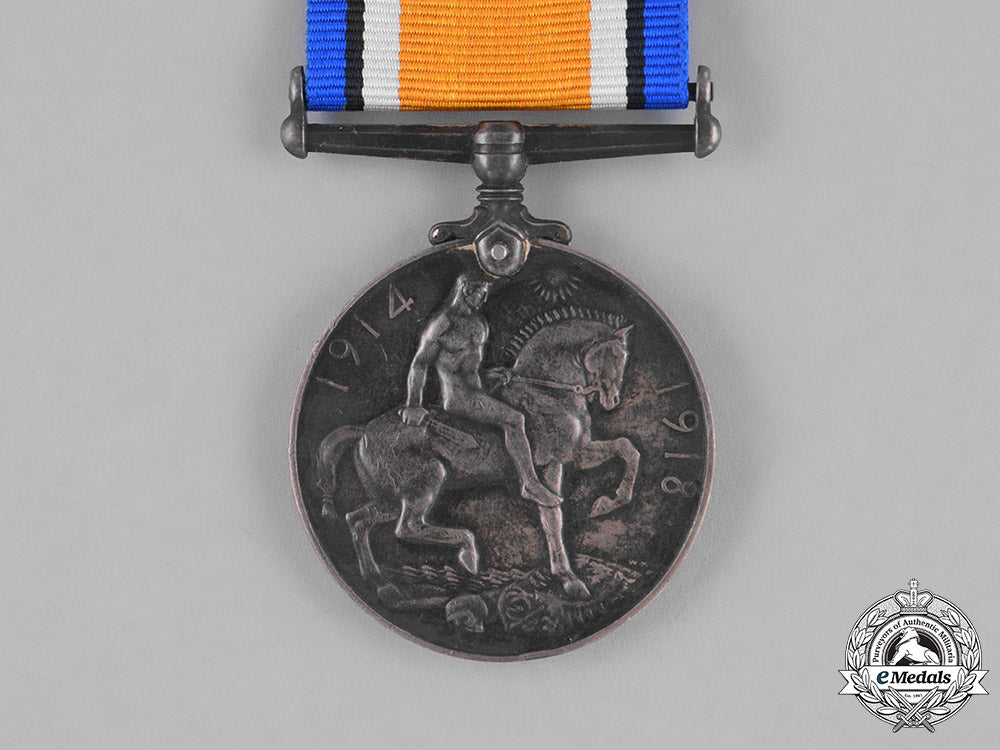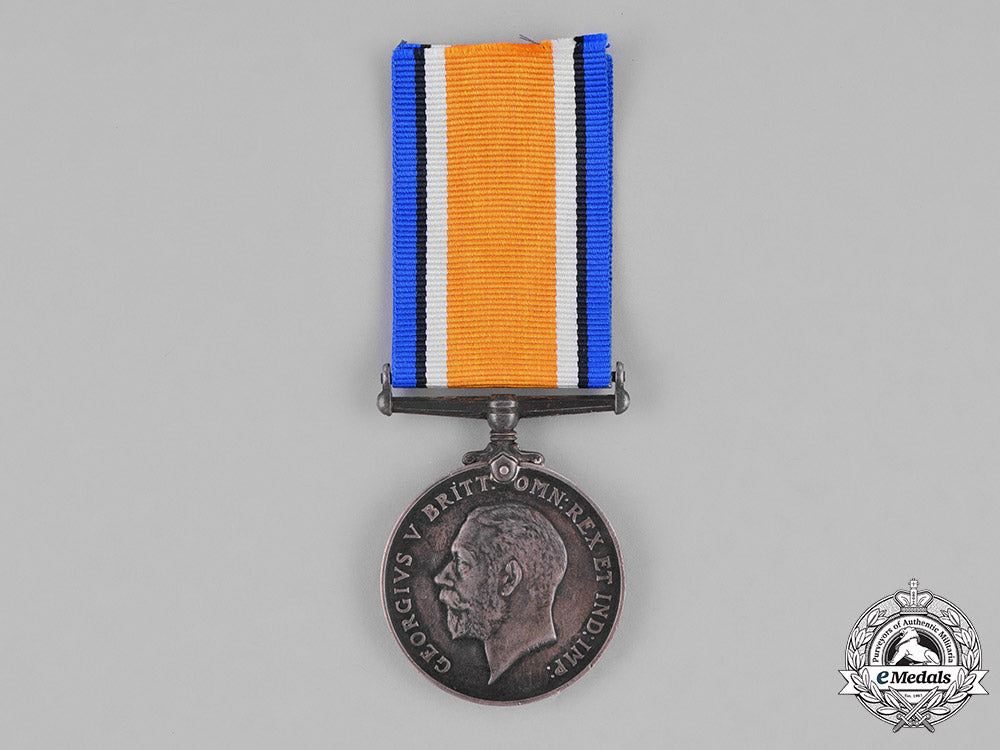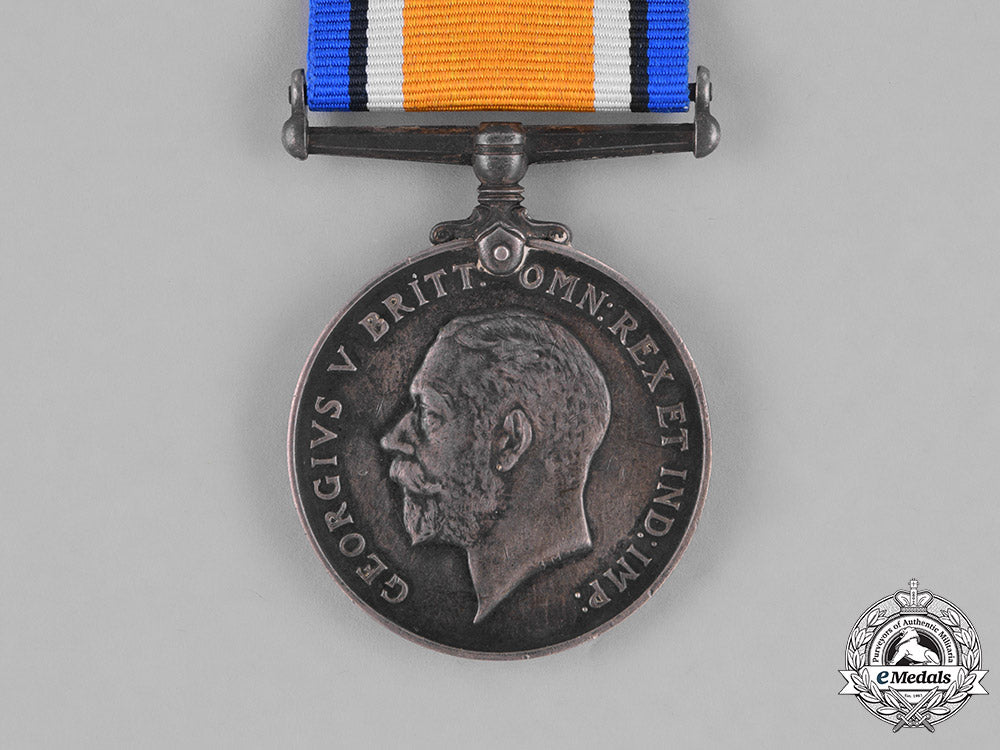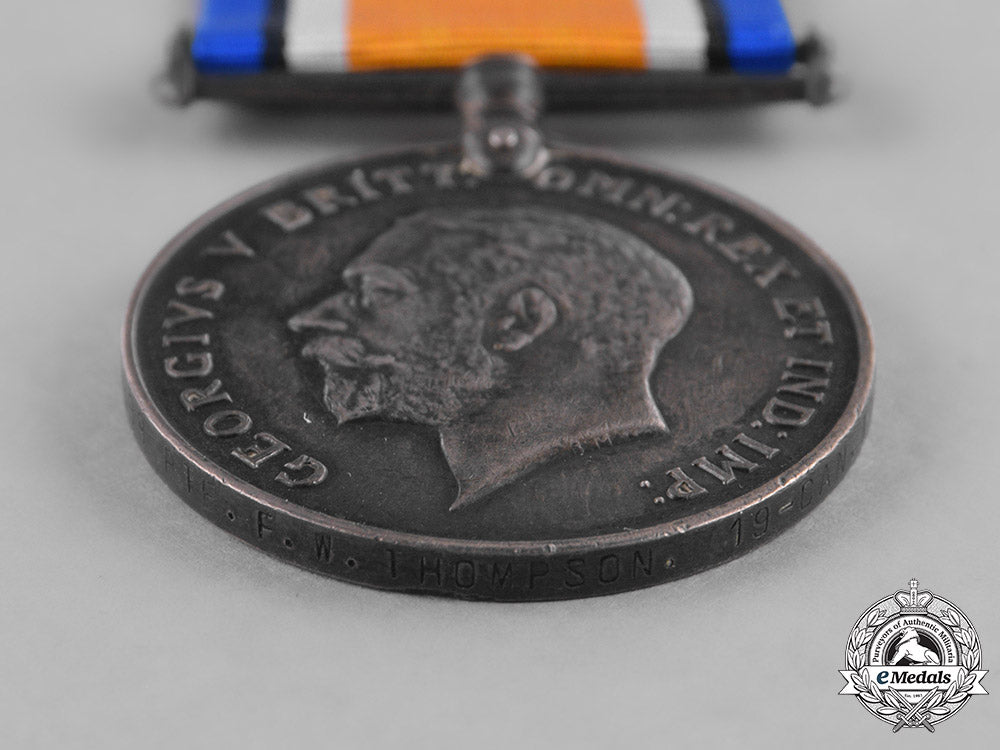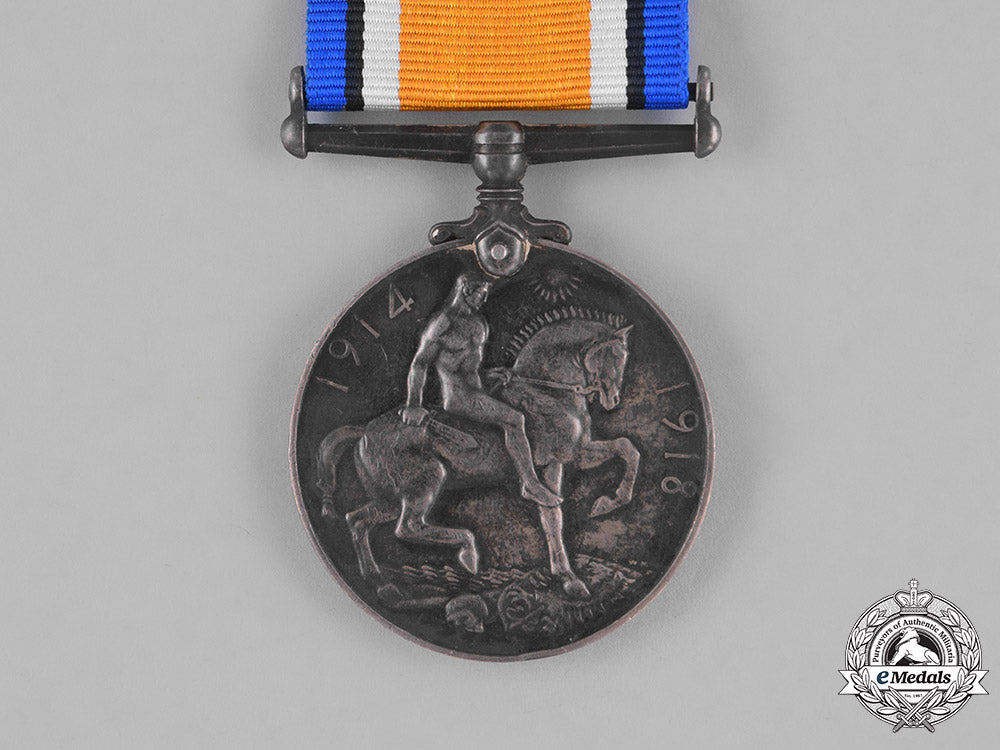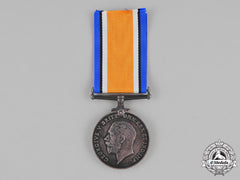
LOADING ...
In response to evolving domestic opinion, eMedals Inc has made the conscious decision to remove the presentation of German Third Reich historical artifacts from our online catalogue. For three decades, eMedals Inc has made an effort to preserve history in all its forms. As historians and researchers, we have managed sensitive articles and materials with the greatest of care and respect for their past and present social context. We acknowledge the growing sentiments put forth by the Canadian public and have taken proactive actions to address this opinion.
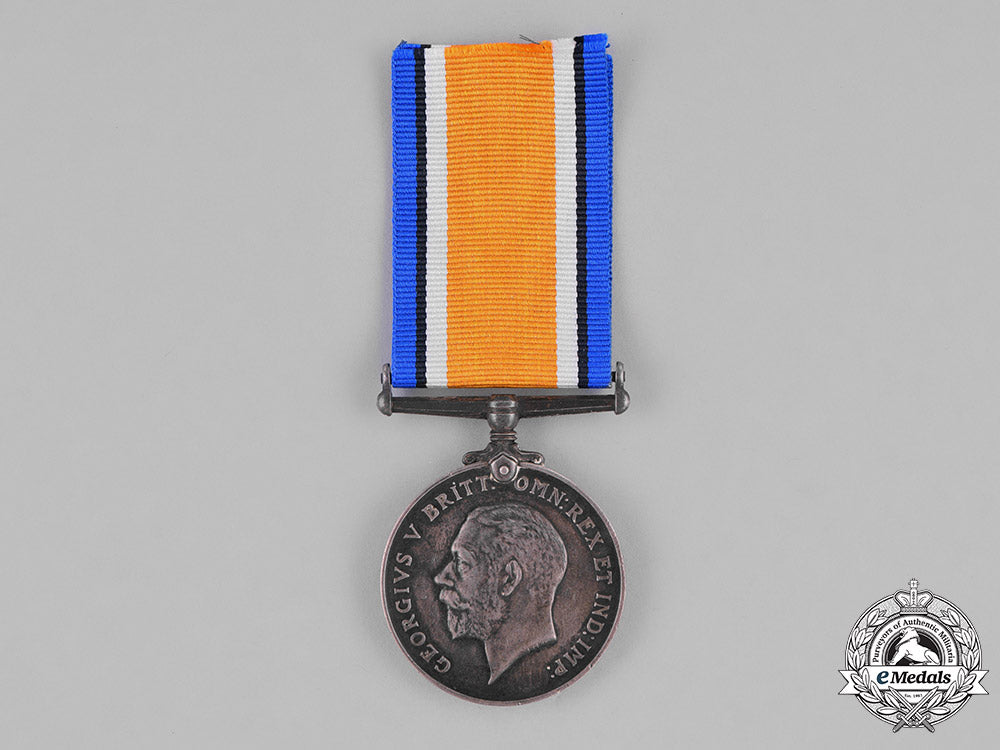
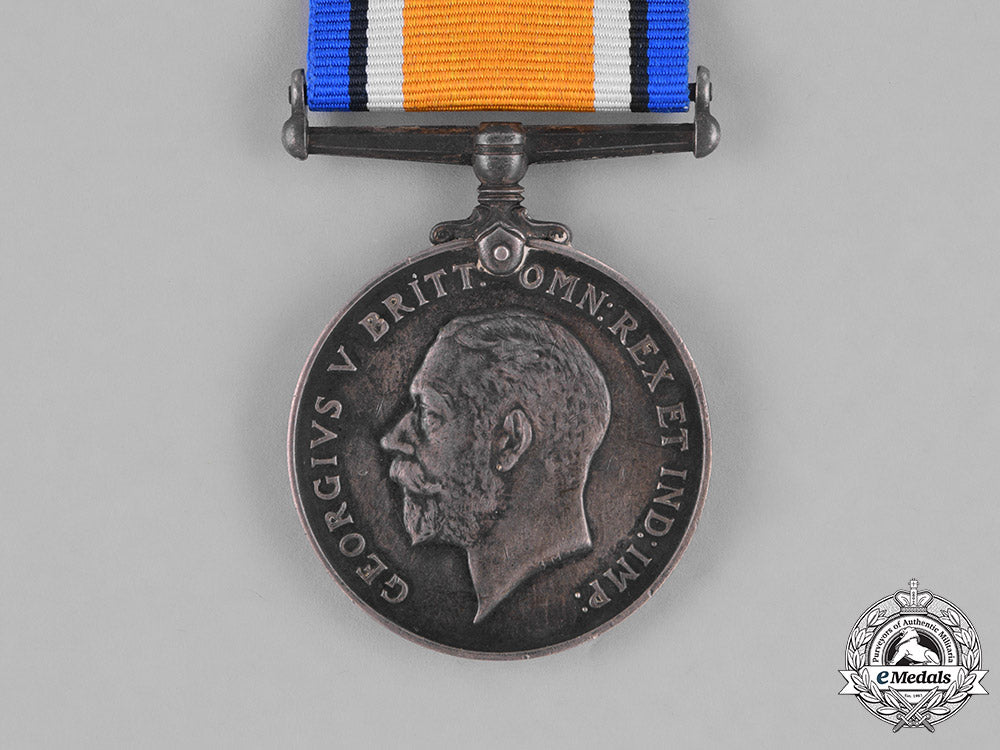
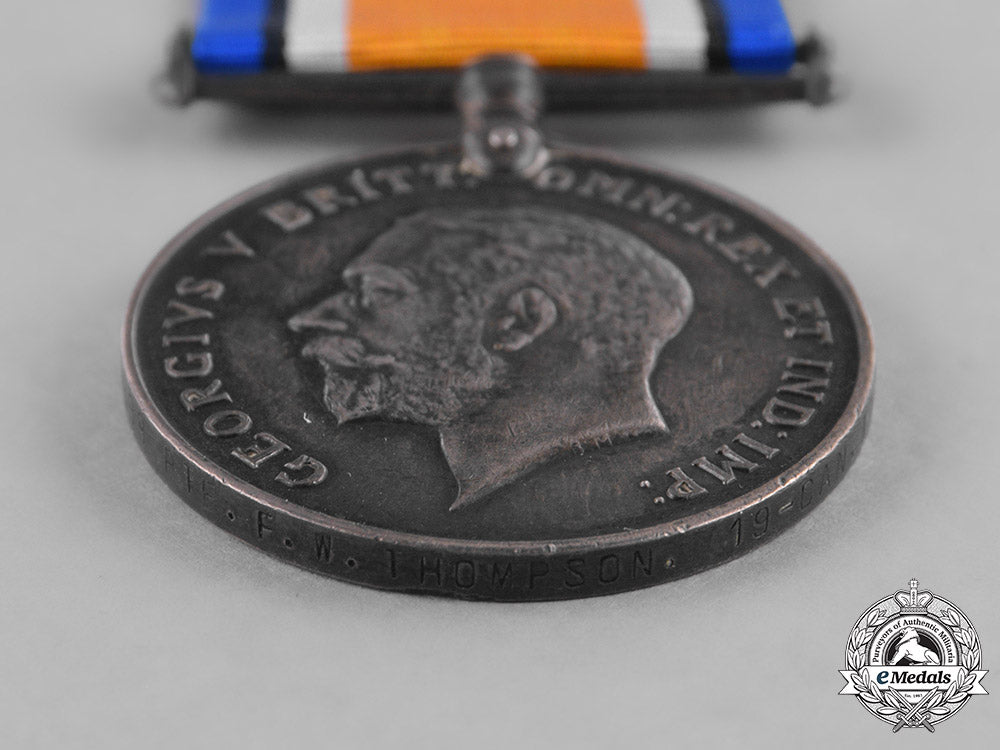
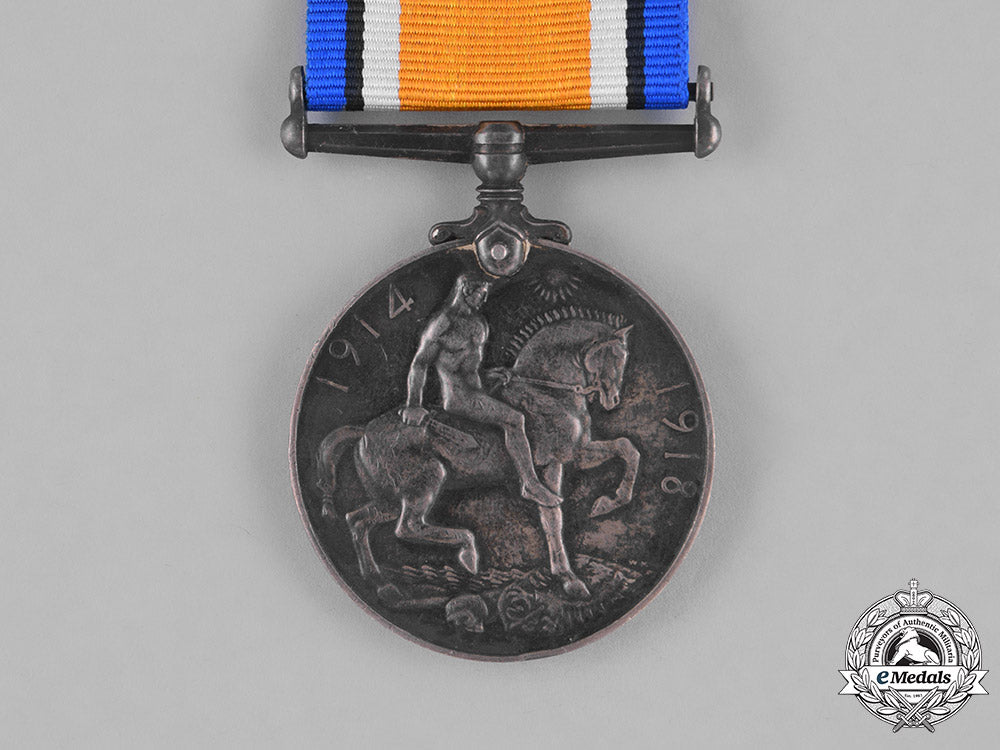
Canada. A War Medal, Private Thompson, 134Th Infantry Battalion, 19Th Infantry Battalion
Canada. A War Medal, Private Thompson, 134Th Infantry Battalion, 19Th Infantry Battalion
SKU: ITEM: C5221
Current Bid:
Your Max Bid:
Bid History:
Time Remaining:
Couldn't load pickup availability
Shipping Details
Shipping Details
eMedals offers rapid domestic and international shipping. Orders received prior to 12:00pm (EST) will be shipped on the same business day.* Orders placed on Canadian Federal holidays will be dispatched the subsequent business day. Courier tracking numbers are provided for all shipments. All items purchased from eMedals can be returned for a full monetary refund or merchandise credit, providing the criteria presented in our Terms & Conditions are met. *Please note that the addition of a COA may impact dispatch time.
Shipping Details
eMedals offers rapid domestic and international shipping. Orders received prior to 12:00pm (EST) will be shipped on the same business day.* Orders placed on Canadian Federal holidays will be dispatched the subsequent business day. Courier tracking numbers are provided for all shipments. All items purchased from eMedals can be returned for a full monetary refund or merchandise credit, providing the criteria presented in our Terms & Conditions are met. *Please note that the addition of a COA may impact dispatch time.
Description
Description
(799899 PTE. F.W. THOMPSON. 19-CAN.INF.). Naming is officially impressed. Dark patina, contact marks, edge nicks, bruised, replacement ribbon, fine.
Footnote: Frederick Walter Thompson was born on July 21, 1878 in Toronto, Ontario. He was a resident of Toronto when he signed his Attestation Paper as a Private (799899) with the 134th Infantry Battalion "48th Highlanders", on February 2, 1916 in Toronto, at the age of 37, naming his next-of-kin as his wife, Isabella Thompson of Toronto, stating that he had one year and three months' previous service with the Queen's Own Rifles, that he was Married, that his religion was Congregationalist and that his trade was that of Labourer. He was admitted to hospital at Exhibition Camp in Toronto on March 3, 1916, with a case of "Tonsillitis" and after five days, was discharged on the 8th. The Battalion was raised and mobilized in Toronto, Ontario under the authority of G.O. 151, December 22, 1915 and sailed August 9, 1916 from Halifax, Nova Scotia aboard the S.S. Scotian, under the command of Lieutenant-Colonel A.A. Miller with a strength of 32 officers and 1,078 other ranks, arriving in Liverpool, England on the 19th. In England, the Battalion was absorbed into the 12th Reserve Battalion. Private Thompson was admitted to the Military Hospital at Bramshott on November, 13, 1916, with a case of "Influenza" and after three days, was discharged on the 16th. Private Thompson proceeded overseas for service with the 19th Infantry Battalion in the French theatre on May 23, 1917, taken on strength at the Base Depot in France on the 25th. Eighteen days later, he left for the 2nd Entrenchment Battalion on June 12th, joining them the same day. After three weeks service with the 2nd Entrenchment Battalion, he was posted to the 19th Infantry Battalion on July 4th, joining them the same day. Private Thompson was serving with the 19th Infantry Battalion in the Fall of 1917, when he was admitted to No. 4 Canadian Field Ambulance on September 27, 1917, then transferred and admitted to No. 1 Canadian General Hospital at Etaples on the 29th, where he was diagnosed with "P.U.O." (Pyrexia of Unknown Origin = fever). After one week at Etaples, the decision was made that he be invalided to England. Upon arrival in England, he was posted to the Central Ontario Regimental Depot and admitted to Passmore Edwards Hospital at Willesden (Edmonton General Military Hospital) on October 5, 1917.
After three-days at Passmore, he was transferred and admitted to the Canadian Convalescent Hospital at Woodcote Park, Epsom on November 7th, suffering from a "Debility". His situation was deemed to be an "Unsuitable Case - seems (to be) in a very weak condition - is a case for active treatment. Nearly fell over while under examination" and was transferred and admitted the next day to the Manor "County of London" War Hospital in London on November 8th, where he was officially diagnosed with "Trench Fever". It was here that the serious issues with his right leg were identified, in addition to having "troubles in walking", along with "knee jerks" and "also pain in both legs". After almost twelve weeks' treatment at the Manor, Private Thompson was transferred and admitted to No. 16 General Hospital (Ontario Military Hospital) at Orpington, Kent on January 29, 1918, the effects of the Trench Fever still an issue. He was re-assessed on February 28th, where the attending physician noted that Thompson still complained of "persistent pain in the legs and back", with overall "general weakness". He also had "indigestion", with "some pain in (the) abdomen", along with "pain on eating". After over seven weeks at Orpington, he was discharged from hospitalization on March 22nd. He was attached to the 4th Reserve Battalion from May 16 to June 28, 1918, then placed on command to the Canadian Discharge Depot at Buxton for return to Canada on August 8th. He was invalided sick to Canada, sailing for home on September 22, 1918, arriving in Montreal, Quebec aboard the S.S. Llanstephan Castle, and posted to the Casualty Company in Toronto on October 8th. In his Medical History of an Invalid, dated October 22, 1918 at Park School Barracks in Toronto, the attending physician noted that Private Thompson had "frontal headaches and has dizzy spells on stooping over. Has dyspnoea (shortness of breath) on exertion on walking one mile or going up a flight of 20 steps. Eats well but sleeps poorly due to general restlessness. Has cardiac palpitation, but no pain in the cardiac area". In addition, the doctor stated that Thompson had "Incapacity due to partial loss of function of body due to Trench Fever". He recommended "That he (Thompson) be placed in Category "E" (unfit for General Service, Service Abroad and Home Service) and be discharged as Medically Unfit for further Military Service". Private Frederick Walter Thompson, 134th Infantry Battalion, 19th Infantry Battalion was discharged as "Having been found Medically Unfit for Service", at Military District No. 2 in Toronto, on November 1, 1918, credited with having served in Canada, England and France, his conduct noted as "Very Good." For his First World War service, he was awarded the British War Medal and the Victory Medal.
Description
(799899 PTE. F.W. THOMPSON. 19-CAN.INF.). Naming is officially impressed. Dark patina, contact marks, edge nicks, bruised, replacement ribbon, fine.
Footnote: Frederick Walter Thompson was born on July 21, 1878 in Toronto, Ontario. He was a resident of Toronto when he signed his Attestation Paper as a Private (799899) with the 134th Infantry Battalion "48th Highlanders", on February 2, 1916 in Toronto, at the age of 37, naming his next-of-kin as his wife, Isabella Thompson of Toronto, stating that he had one year and three months' previous service with the Queen's Own Rifles, that he was Married, that his religion was Congregationalist and that his trade was that of Labourer. He was admitted to hospital at Exhibition Camp in Toronto on March 3, 1916, with a case of "Tonsillitis" and after five days, was discharged on the 8th. The Battalion was raised and mobilized in Toronto, Ontario under the authority of G.O. 151, December 22, 1915 and sailed August 9, 1916 from Halifax, Nova Scotia aboard the S.S. Scotian, under the command of Lieutenant-Colonel A.A. Miller with a strength of 32 officers and 1,078 other ranks, arriving in Liverpool, England on the 19th. In England, the Battalion was absorbed into the 12th Reserve Battalion. Private Thompson was admitted to the Military Hospital at Bramshott on November, 13, 1916, with a case of "Influenza" and after three days, was discharged on the 16th. Private Thompson proceeded overseas for service with the 19th Infantry Battalion in the French theatre on May 23, 1917, taken on strength at the Base Depot in France on the 25th. Eighteen days later, he left for the 2nd Entrenchment Battalion on June 12th, joining them the same day. After three weeks service with the 2nd Entrenchment Battalion, he was posted to the 19th Infantry Battalion on July 4th, joining them the same day. Private Thompson was serving with the 19th Infantry Battalion in the Fall of 1917, when he was admitted to No. 4 Canadian Field Ambulance on September 27, 1917, then transferred and admitted to No. 1 Canadian General Hospital at Etaples on the 29th, where he was diagnosed with "P.U.O." (Pyrexia of Unknown Origin = fever). After one week at Etaples, the decision was made that he be invalided to England. Upon arrival in England, he was posted to the Central Ontario Regimental Depot and admitted to Passmore Edwards Hospital at Willesden (Edmonton General Military Hospital) on October 5, 1917.
After three-days at Passmore, he was transferred and admitted to the Canadian Convalescent Hospital at Woodcote Park, Epsom on November 7th, suffering from a "Debility". His situation was deemed to be an "Unsuitable Case - seems (to be) in a very weak condition - is a case for active treatment. Nearly fell over while under examination" and was transferred and admitted the next day to the Manor "County of London" War Hospital in London on November 8th, where he was officially diagnosed with "Trench Fever". It was here that the serious issues with his right leg were identified, in addition to having "troubles in walking", along with "knee jerks" and "also pain in both legs". After almost twelve weeks' treatment at the Manor, Private Thompson was transferred and admitted to No. 16 General Hospital (Ontario Military Hospital) at Orpington, Kent on January 29, 1918, the effects of the Trench Fever still an issue. He was re-assessed on February 28th, where the attending physician noted that Thompson still complained of "persistent pain in the legs and back", with overall "general weakness". He also had "indigestion", with "some pain in (the) abdomen", along with "pain on eating". After over seven weeks at Orpington, he was discharged from hospitalization on March 22nd. He was attached to the 4th Reserve Battalion from May 16 to June 28, 1918, then placed on command to the Canadian Discharge Depot at Buxton for return to Canada on August 8th. He was invalided sick to Canada, sailing for home on September 22, 1918, arriving in Montreal, Quebec aboard the S.S. Llanstephan Castle, and posted to the Casualty Company in Toronto on October 8th. In his Medical History of an Invalid, dated October 22, 1918 at Park School Barracks in Toronto, the attending physician noted that Private Thompson had "frontal headaches and has dizzy spells on stooping over. Has dyspnoea (shortness of breath) on exertion on walking one mile or going up a flight of 20 steps. Eats well but sleeps poorly due to general restlessness. Has cardiac palpitation, but no pain in the cardiac area". In addition, the doctor stated that Thompson had "Incapacity due to partial loss of function of body due to Trench Fever". He recommended "That he (Thompson) be placed in Category "E" (unfit for General Service, Service Abroad and Home Service) and be discharged as Medically Unfit for further Military Service". Private Frederick Walter Thompson, 134th Infantry Battalion, 19th Infantry Battalion was discharged as "Having been found Medically Unfit for Service", at Military District No. 2 in Toronto, on November 1, 1918, credited with having served in Canada, England and France, his conduct noted as "Very Good." For his First World War service, he was awarded the British War Medal and the Victory Medal.
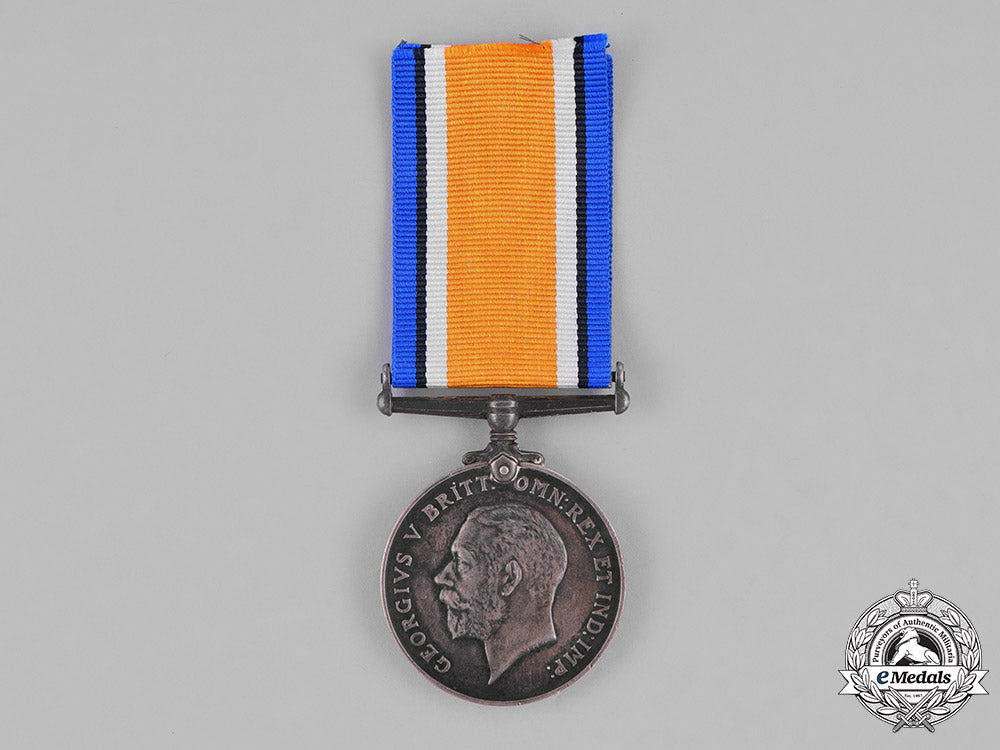
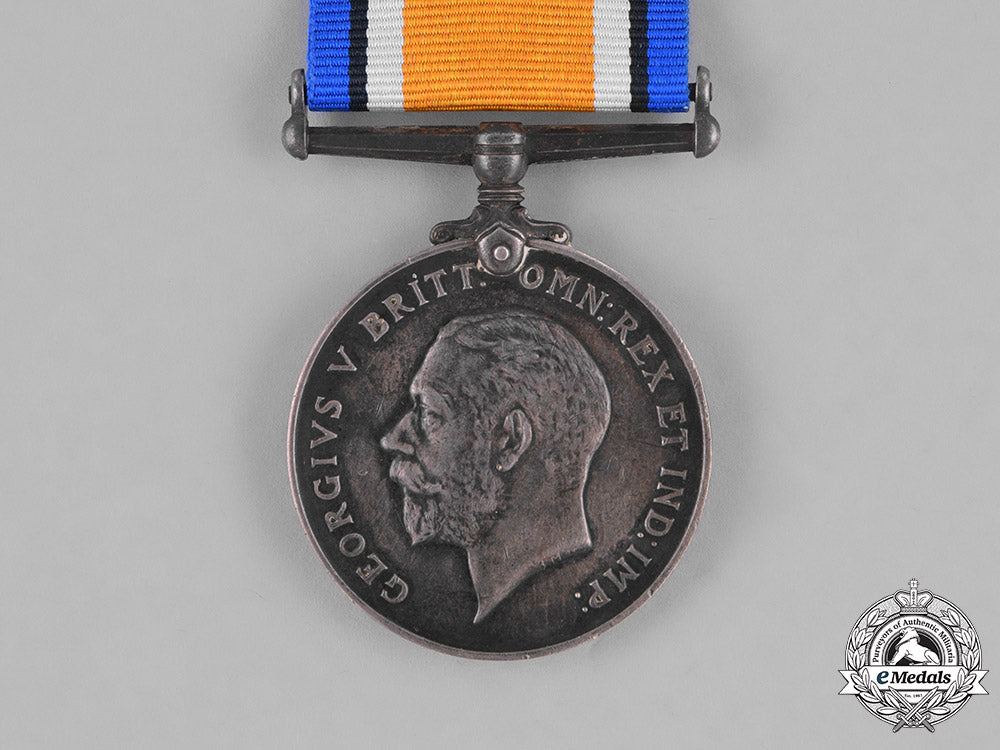
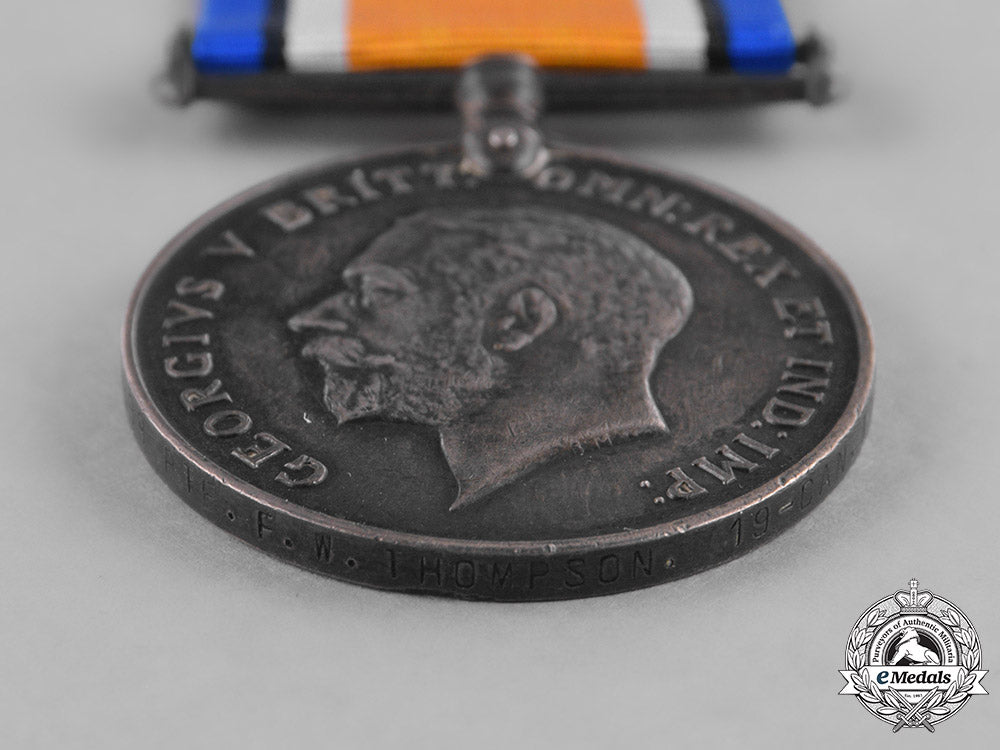
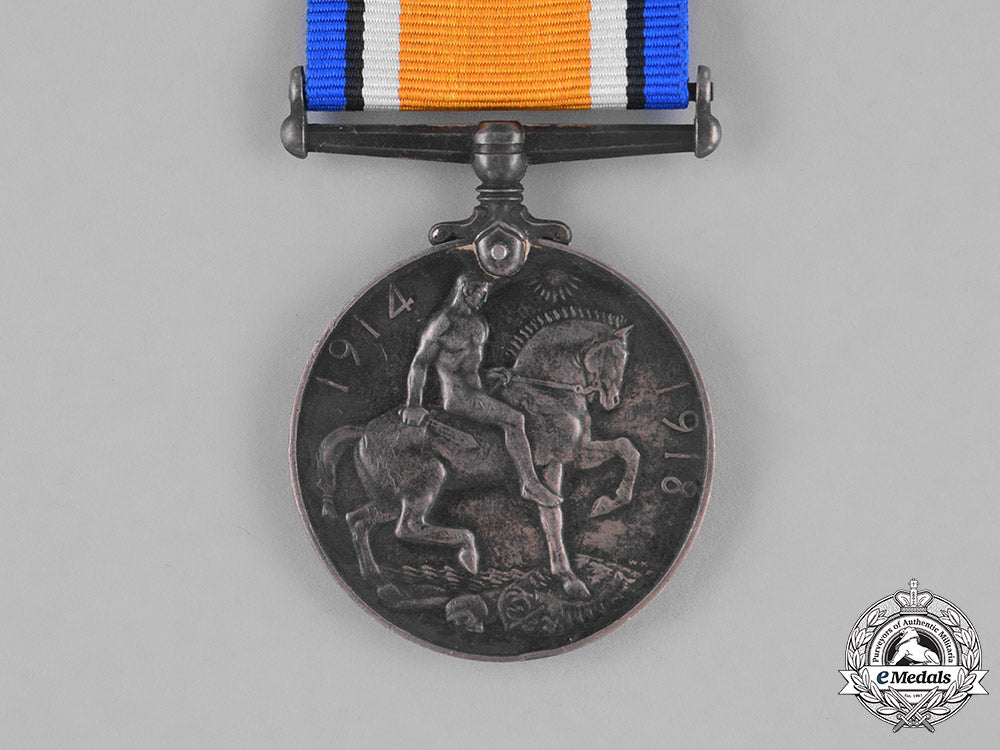
You May Also Like
Japan, Empire. A T90 Civil Defense Helmet, c.1943
W8287
Germany, SA. A Model 1933 Service Dagger, SA-Gruppe Nordsee, by Friedrich von der Kohlen
G59818
Germany, SA. A Model 1933 Service Dagger, SA-Gruppe Pommern, by Gustav Wirth
G59816
Germany, Third Reich. A Mixed Lot of Tyrolean Marksmanship Badges
G52930
Germany, SS. An Estonian Waffen-SS Volunteer’s Sleeve Shield
G50381
-
Japan, Empire. A T90 Civil Defense Helmet, c.1943
W8287
Add to CartRegular price $275 USDRegular price $0 USD Sale price $275 USDUnit price / per -
Germany, SA. A Model 1933 Service Dagger, SA-Gruppe Nordsee, by Friedrich von der Kohlen
G59818
Add to CartRegular price $980 USDRegular price $0 USD Sale price $980 USDUnit price / per -
Germany, SA. A Model 1933 Service Dagger, SA-Gruppe Pommern, by Gustav Wirth
G59816
Add to CartRegular price $980 USDRegular price $0 USD Sale price $980 USDUnit price / per -
Germany, Third Reich. A Mixed Lot of Tyrolean Marksmanship Badges
G52930
Add to CartRegular price $135 USDRegular price $0 USD Sale price $135 USDUnit price / per -
Germany, SS. An Estonian Waffen-SS Volunteer’s Sleeve Shield
G50381
Add to CartRegular price $150 USDRegular price $0 USD Sale price $150 USDUnit price / per
Do you have a similar item you are interested in selling?
Please complete the form and our client care representatives will contact you.
Sell Item